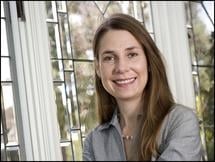
NOMA — As Joi Morris knows, the truth can be scary.
However, Morris recently made learning the truth about heightened risks of breast and ovarian cancer caused by gene mutations a little easier through her book, “Positive Results: Making the Best Decisions When You’re at High Risk for Breast or Ovarian Cancer.” The book, co-authored by Dr. Ora Gordon, was inspired by Morris’ own high-risk experience.
When Morris reached the same age at which her mother was diagnosed with breast cancer, her doctor suggested she undergo genetic testing for mutations on her BRCA1 or BRCA2 genes — mutations which increase a person’s risk for breast and ovarian cancers.
“For a while I wasn’t sure it was something I wanted to do,” Morris said. “It’s one thing to know you’re at high risk because your mother had breast cancer early in life and it’s another to know you’re at astronomically higher risk because you carry a genetic mutation.”
Morris tested positive for a BRCA2 mutation, the same as her mother. While a woman’s average risk of developing breast cancer during her life is 12 percent, a woman with a mutation on either gene has a likelihood of 50 to 87 percent. Mutations also increase the chance of developing cancer at a younger age and in more aggressive forms.
After discovering her vulnerability, Morris began searching for options, but failed to find an extensive guide on managing her risk.
“I wanted a guide I could read and dog-ear the pages and take with me to all my doctors appointments,” said Morris. “There wasn’t anything out there.”
Three years ago, after countless hours of research and careful decision making, Morris underwent a prophylactic mastectomy. One day during her recovery, Morris was walking with her sister-in-law, lamenting the lack of comprehensive resources available while making her decision.
“I was griping to her and she said, ‘You know what? Just write it,’” Morris said. “I know I looked at her like she lost her mind.” However, after studying journalism as an college undergraduate and practicing law for 13 years, Morris knew she had the research skills to undertake the work. She approached Gordon, the head of GenRISK Adult Genetics Program at Cedars Sinai and one of the top experts on hereditary breast and ovarian cancer, for guidance. Gordon agreed to help.
Since it’s Feb. 23 publication date, the book has received great response and remained in the number one or two spots on Amazon’s new releases, breast cancer list. Morris said the book’s success lets her know that writing the book was the right thing to do.
“Finding out you carry a mutation ... can be a very isolating experience,” Morris said. “You just feel like the weight of the world is sitting on you.”
In her book, she wove together her own journey with the experiences and decisions of others, hoping those who read it will feel they are supported and have options.
Although Morris said surgery is not the answer for everyone, it was what she needed to find peace. She disliked the stress of MRIs or mammograms every six months and waiting for biopsy results of any abnormalities. She found her concern over developing breast cancer dominated her thoughts night and day.
“As soon as I had the surgery I woke up without feeling that level of oppression and stress,” Morris said. “[Fear] does not run my life.”
Now, Morris has more energy to focus on the things she loves about Santa Monica, like being involved in her two sons’ classrooms as a parent volunteer and walking the cliffs overlooking the beach. Morris said that when she came to Santa Monica in 1994, she fell in love with the weather and outdoor activities the climate allows for most days of the year, such as hiking, biking and being near the beach.
“I grew up in the middle of the country where there was no ocean,” Morris said of her upbringing on a Missouri farm. “When I moved out here I decided if I was going to move all the way across the country, I was going to live near the ocean.”
Morris also spends time as an outreach coordinator for the Los Angeles branch of Facing Our Risk of Cancer Empowered (FORCE), a nationwide support group for those at high risk for cancer. She continue to raise awareness of genetic predisposition to breast and ovarian cancers. She urges women, even those without gene mutations, to begin mammograms during their 40s, regardless of recent opinions that women should wait until their 50s.
“Until there’s a broader knowledge among the general population, as well as the medical community, to look at family history and try and identify women like me who might be at very high risk, we are doing a disservice,” Morris said.
She added she hopes women will look deeply into their family backgrounds to determine if they might be at risk, and, if they are, realize they are not alone.








